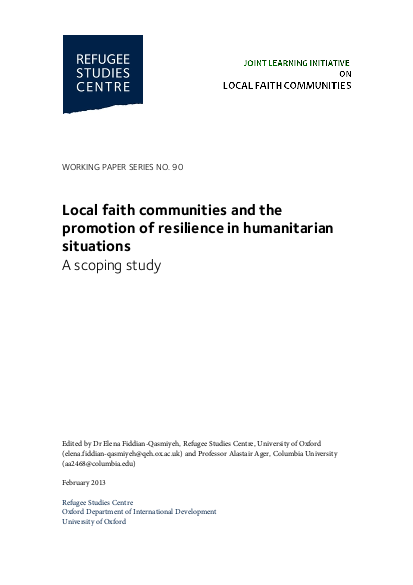
Local Faith Communities (LFCs) are groupings of religious actors bonded through shared allegiance to institutions, beliefs, history or identity. They engage in a range of activities across the humanitarian spectrum. Resilience – defined as the ability to anticipate, withstand and bounce back from external pressures and shocks – is increasingly a central construct in the shaping of humanitarian strategy by the international community. Faith groups are often central to strengthening resilience and reinforcing the local processes of identity and connection that comprise the social fabric of communities disrupted by disaster or conflict. There is increasing recognition of LFCs’ roles by the mainstream humanitarian community, as evidenced by emerging research and international dialogues on faith, such as the UNHCR Dialogue on Faith and Protection in December 2012. However there are a number of challenges to establishing partnerships with LFCs.